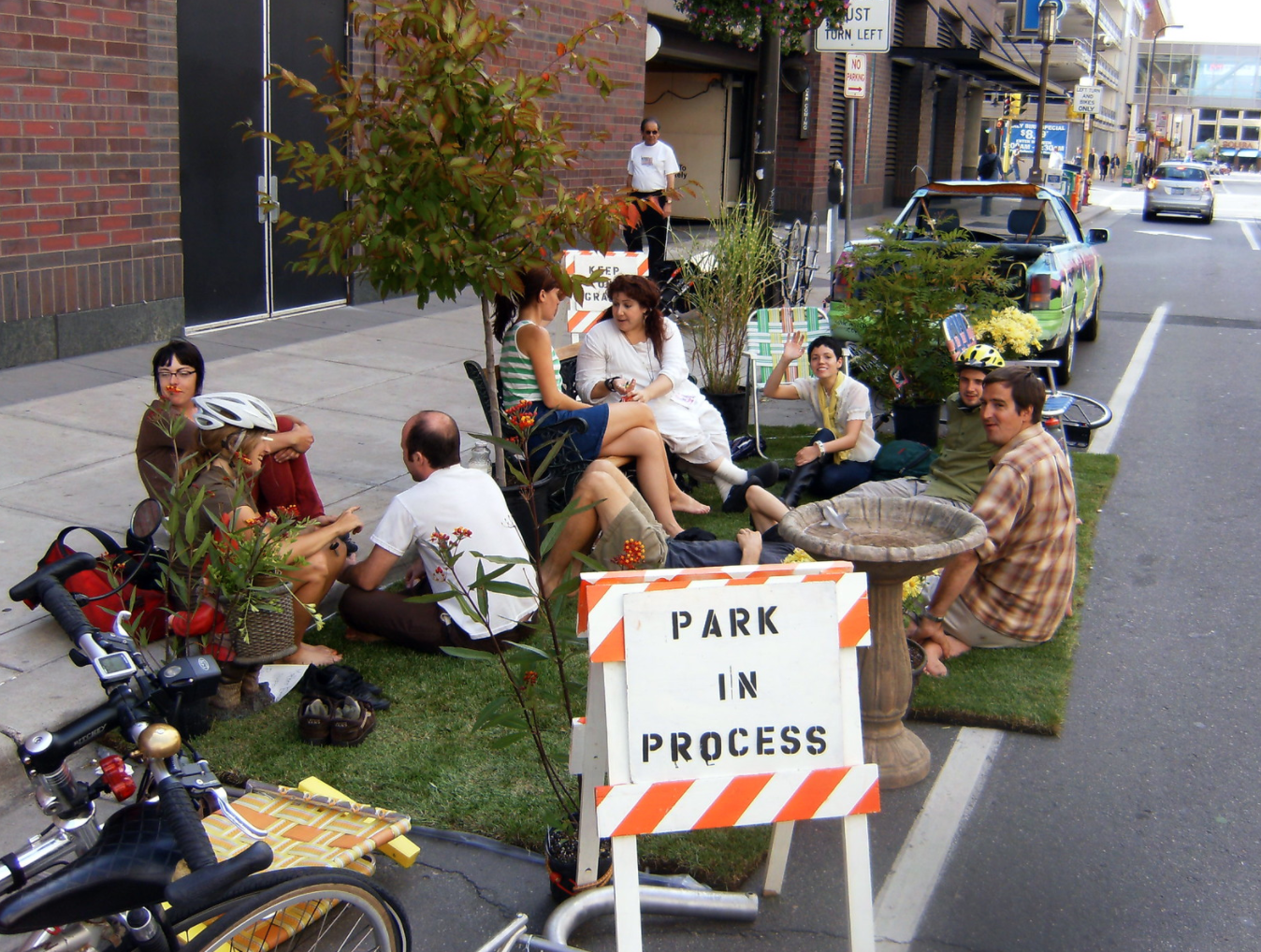In a rare example of collaboration between city and state DOTs that doesn't center the needs of drivers, the Washington State Department of Transportation will allow cities to temporarily reallocate lanes on state roads for uses other than driving.
The Safe, Healthy, and Active Streets Program will help communities "identify, plan, design, install and maintain" temporary projects like parking spot patios for restaurants, pop-up bike lanes, sidewalk extensions and even full-scale Open Streets events on state highways with speed limits under 35 miles an hour.
Lane reallocation programs have become more common in the wake of the COVID-19 as cities have scrambled to make more space for social distancing. But many cities are riven with state-controlled roads that aren't locally maintained and can't quickly be repurposed by municipalities.
In West Virginia, for instance, fully 89 percent of roadways were administered by the state DOT at last count, compared to just 6 percent in New Jersey. The majority of American cities are criss-crossed by a complex combination of interlocking state and locally owned thoroughfares — a fact that has long stymied equitable, network-wide road changes, like contiguous bike lanes. In the age of COVID-19, that's meant that even the best pop-up bike lane on a local road might come to a sudden stop when it intersects with a state highway — a bureaucratic stumbling block which can deter local DOTs from trying even even the lightest-touch temporary road change at all.
The Washington DOT's program may be the first state-administered program of its kind — and if the model is replicated in the many, many states with a large number of urban highways, it has the potential to be transformative.
Transformation for whom is an important question, however. As Streetsblog has covered extensively, pandemic-era lane reallocation initiatives have faced criticism from communities of color in cities like New York, and Oakland for being rolled out without meaningful community engagement or, worse, with enforcement by cops, who have a track record of violent over-policing.
And in New York City, more roadways are being reclaimed from cars for use by private restaurants, which some have said risks commercializing space, creating new haves and have-nots.
It’s not just about “opening” a space or street. Program the space, pay for facilitation and creativity in the space. create amenities for assembling, invest in the tools/resources necessary for that space to be accessible and culturally relevant while its “open”.
— Dr. Destiny Deguzman (nee Thomas) (@DrDesThePlanner) July 5, 2020
Still, Washington leaders have the potential to learn from other states' equity mistakes — and if nothing else, the state DOT program will expand city leaders' toolboxes for delivering residents changes they actually want. Other states should follow their lead — just as cities should keep talking about how to use this powerful new tool to help rather than harm.






